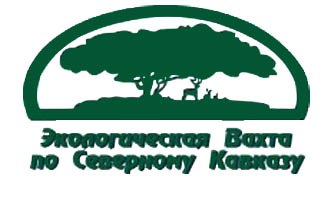The Green Russia faction of the Russian united democratic party YABLOKO (information)
1. Number of members and organizational structure
The Green Russia faction was established at the 13th Congress of the YABLOKO party in June 2006. At the same time the Gender, the Youth and the Soldiers’ Mothers factions were formed in the party. This led to adding the word “united” to the official name of the Party (The Russian United Democratic Party YABLOKO, and one of the official short names of the Party is «YABLOKO — United Democrats»).
The Green Russia faction has 41 regional branches and 2,923 members (see Appendix 1). It is the largest faction in the Party.
The faction members are actively involved in the organizational work of the Party: in Political Committee (Alexei Yablokov, faction chair), the Federal Bureau (Alexander Nikitin and Olga Tsepilova, deputy chairs of the faction, as well as Galina Boldyreva from the Volgograd region and Dmitry Rybakov from the Republic of Karelia); the Auditing Commission (Andrei Talevlin from the Chelyabinsk region), and the Arbitration (Tatiana Tribrat from the Krasnodar region). Five regional branches of the Party are headed by the Green Russia’ activists (those in the Amur region, the Republic of Bashkortostan, the Volgograd, the Krasnodar and the Chelyabinsk regions). Many the Party’s regional branches has the fraction members as deputy heads.
The faction has been developing. In 2010 – 2012 four new regional branches of the faction were formed. Long-term YABLOKO members well-known in Russia joined the faction, such as Vassily Popov, the Political Committee member and leader of the Karelian regional branch of YABLOKO, Andrei Babushkin, renowned human rights activist and member of the Federal Bureau, Boris Vishnevsky, famous journalist, member of the Legislative Assembly of St. Petersburg and member of Federal Bureau, and Ilya Lazerson, a well-known TV anchor and President of the Culinary Art School in St. Petersburg.
The fraction has two permanent commissions (on Protection of Animals and on Nuclear and Radiation Safety).
The 18th Congress of the Party (June, 2012), on the initiative of the fraction, adopted an additional short name for the Party: “YABLOKO — GREEN RUSSIA”.
2. Participation in the elections
A few months before the official formation of faction in 2006, the leaders of the then independent party Green Russia entered the coalition list of YABLOKO at the elections to the Moscow City Duma (the Moscow parliament), which, even according to the falsified official data, received about 10 per cent of the vote (which allowed to form there the YABLOKO faction).
In 2007, the leader of the faction was nominated among the top three YABLOKO’ candidates in the elections to the Moscow Regional Duma. That time YABLOKO did not pass in the Duma, but the party received up to 20-30 per cent of the vote in several “scientific cities”.
In 2007, Dmitry Rybakov, the leader of the Karelian branch of the faction, was elected to the City Duma of Petrozavodsk (the parliament of the capital of the Republic of Karelia) and for five years headed there a Commission on environmental policy. In elections in 2011, the ruling party employed the most dirty election technologies in campaigning against him and mass-scale fraud, however, even in such circumstances he came second in the territory with 25 per cent of the vote.
For the whole period of its functioning the activists of the Green Russia faction participated in election campaigns at different levels: elections to local municipalities, regional legislatures and the State Duma. The authorities employed a well-established pattern in fighting against the opposition: in the regions where our candidates had the largest chances to win the election, they were in most cases either not included into the lists of candidates or removed from the race on artificial and illegitimate pretexts.
In 2007, twenty two «green» candidates from the faction representing 14 Russia’s regions participated in the in elections in the State Duma. On average, the official results of the «green» were higher than the results of the whole Party.
In 2011, the Green Russia faction took part in the elections to the State Duma, the Legislative Assembly of Karelia and St. Petersburg Legislative Assembly. The leader of the faction was in the top three YABLOKO’s candidates, and 27 other members of the faction participated in the elections to the State Duma. Visible results were obtained in St. Petersburg, Karelia, Bashkortostan, Buryatia, the Chelyabinsk region, the Volgograd region, the Voronezh region, the Arkhangelsk region, the Leningrad and the Amur regions, and the KrasnodarTerritory. Olga Tsepilova received 12,74 per cent of the vote in the Central precinct of St. Petersburg, and Dmitry Rybakov obtained 6.98 per cent in the Republic of Karelia. In the elections to the Legislative Assembly of Karelia Dmitry Rybakov (number two in local YABLOKO’s list) lacked only 0.2 per cent so that to pass to the Karelian parliament. In the elections to the Legislative Assembly of St. Petersburg «green» candidates A. Smirnov, N. Rybakov, and O. Tsepilova got respectively 12, 13 and 15 per cent of the vote. Due to their contribution to YABLOKO’s campaign, the Party managed to form the party’ faction in the Legislative Assembly of St. Petersburg (six deputies).
3. Some other activities
The faction has been organizing pickets, round tables, conferences, public hearings, etc. (for examples, see Appendix 2). It focuses on infill construction in the cities, the protection of nature reserves, opposes construction of environmentally unfriendly productions and facilities, protection of environmental rights, protection of water and forests, protection of animals and anti-nuclear activities. The faction members are active participants (and often organizers) of the protests against election fraud.
For example, in 2012, the faction held a nationwide conference and two conferences on regional issues (for the Moscow region and the St. Petersburg). The conference was attended not only by members of the faction, but also representatives of environmental organizations. In 2013 the faction will conduct three conferences: in the Kemerovo region, in Krasnoyarsk, in the North Caucasus and several conferences in the Moscow region.
Since 2006, nationwide environmental newspaper “Bereginiya” (Nizhny Novgorod) has been publishing the party insert (see Appendix 3).
The faction publishes a series of books «Environmental Policy» (in 2007 – 2010, six books were published, see Appendix 4) and a series of booklets «Regional Environmental Policy» (in 2008 – 2012 24 booklets were published, see Appendix 5).
Other publications of the faction include: «KhimkiForest. An Unfinished Story of the Struggle” (2010) and «Pros and Cons on Nuclear Energy (a Dispute with Nuclearists)» (2012).
The faction also publishes its news, documents and booklets at the Party websites (www.yabloko.ru and www.eng.yabloko.ru ) and the fraction web-site (www.rus-green.ru).
Regularly on the initiative of the Green Russia faction the Party adopts environmental policy statements on the most pressing and urgent problems of the country and its regions, and also the faction independently adopts a number of political statements.
Since 2007, the fraction (together with environmental organizations) has been conducting annual competitions for schoolchildren «Nature, Man and the Country» (gathering up to 2,000 participants every year).
4. Honours and Awards
2007 (London, UK). Olga Tsepilova, Deputy Chair of the faction, was chosen among 47 «World Heroes of the Environment» list published by the Time Magazine.
2011 (Berlin, Germany). Activists of the Chelyabinsk branch of the Green Russia fraction Natalia Manzurova and Nadezhda Kutepova were awarded the International Prize “Nuclear-Free Future” (in the category “Resistance”).
2011 (Moscow, Russia). Albert Kalashnikov, head of the Amur branch of the fraction, was recognized by the First International Forum of Civil Journalism «Ekoblogia» as one of the top ten Russian bloggers writing on environmental issues.
2012 (Moscow, Russia). Leena Zernova, head of the Leningrad Region branch of the fraction, won the “Artyom Borovik Prize” for best journalistic investigation.
5. International Activities
On the initiative of the faction the Council of the European Green Party has adopted a number of resolutions on the most urgent issues (including those on the environmental problems of St. Petersburg, Sochi and LakeBaikal).
The faction members regularly took part in anti-nuclear and other conferences and parliamentary meetings in Sweden, Finland, Norway, Germany, Lithuania and other European countries.
Alexey Yablokov,
Faction Chair
01/03/2013







